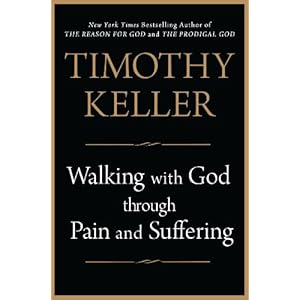However Tim Keller in his latest must-own book Walking With God Through Pain And Suffering argues poignantly that this inconsistency between the reality of an all powerful and good God and the problem of evil are not ultimately at odds:
If God has good reasons for allowing suffering and evil, then there is no contradiction between his existence and that of evil. So in order for his case not to faith, the skeptic would have to reply that God could not possibly have any such reasons. But it is very hard to prove that.
To show the skeptic that his premise is untrue, the believer could point out that we ourselves often allow suffering in someone's life in order to bring about some greater good. Doctors often inflict painful procedures and treatments on people, all for the purpose of the greater good of better health and longer life. Parents who punish bad behavior with the loss of toys or privileges are causing pain, but the alternative is that the child will grow into an adult with no self-control and would therefore experience far greater suffering...Many can point to adversity in their lives that, however excruciating, taught them lessons that helped them avoid greater suffering later. So the principle of allowing pain for the good reason of bringing about a greater happiness is valid and one we understand ourselves. That means there is no automatic inconsistency between God and the existence of evil and suffering. (97)Keller, like usual, knocks this topic out of the park. I would invite you to read his text. We all face evil and suffering in this world and Keller provides arrows in our quiver for us to deal with them when they come.
JT Holderman is Assistant Pastor of Bellevue Evangelical Presbyterian Church in Gap, PA.


JT,
ReplyDeleteVery helpful heads up on a new book and great list of good/necessary pains in life. I think some people also have problems with evil's origin given the more epic scope of Christian's claiming God's absolute control. A doctor performing painful surgery is good; a doctor giving cancer and than performing surgery: bad. Does Keller, or you, have thoughts on that from the book?
Chip